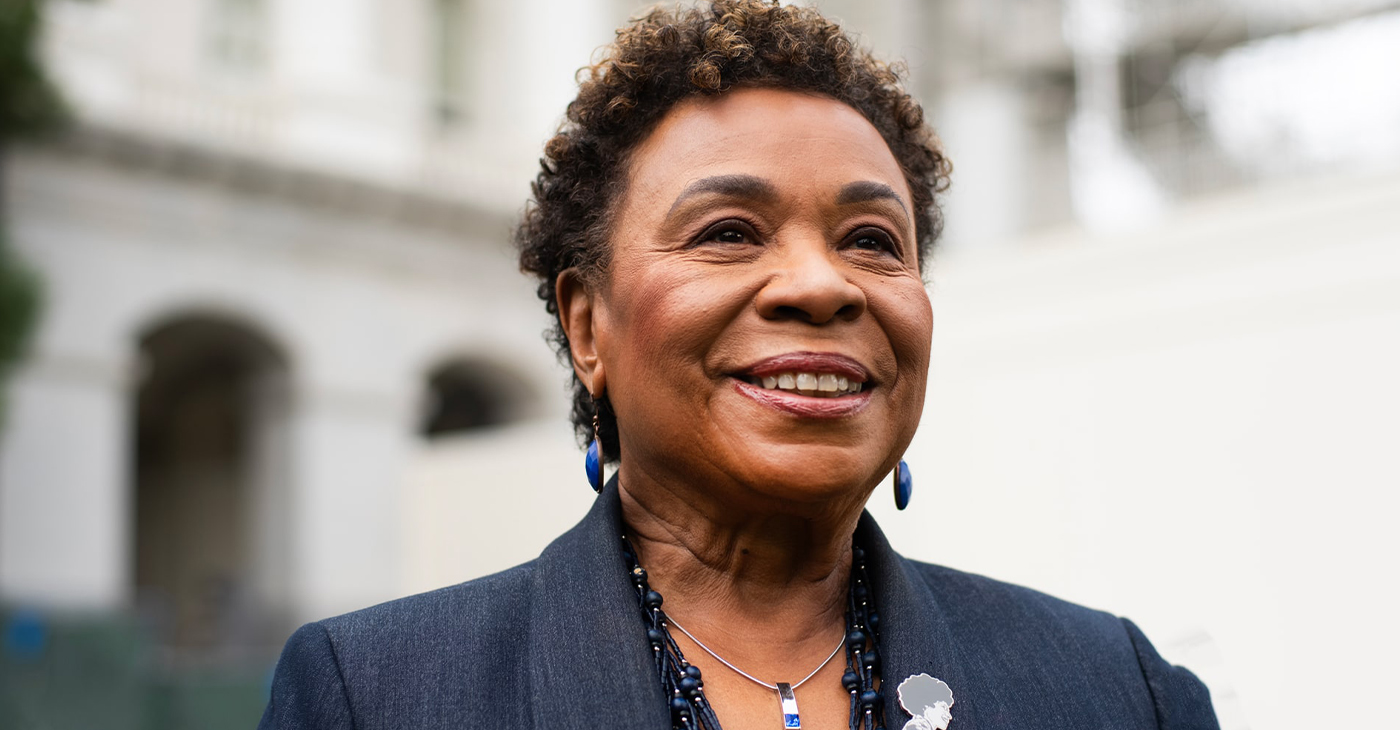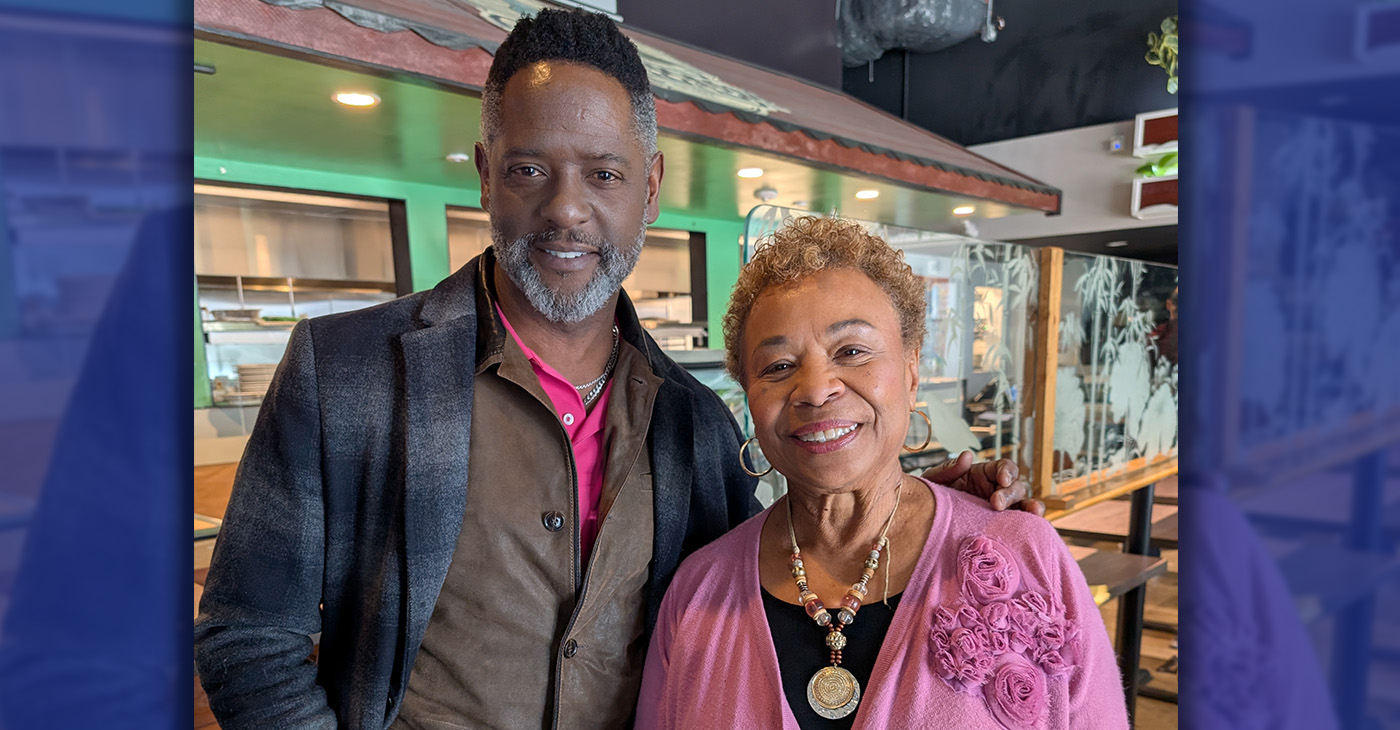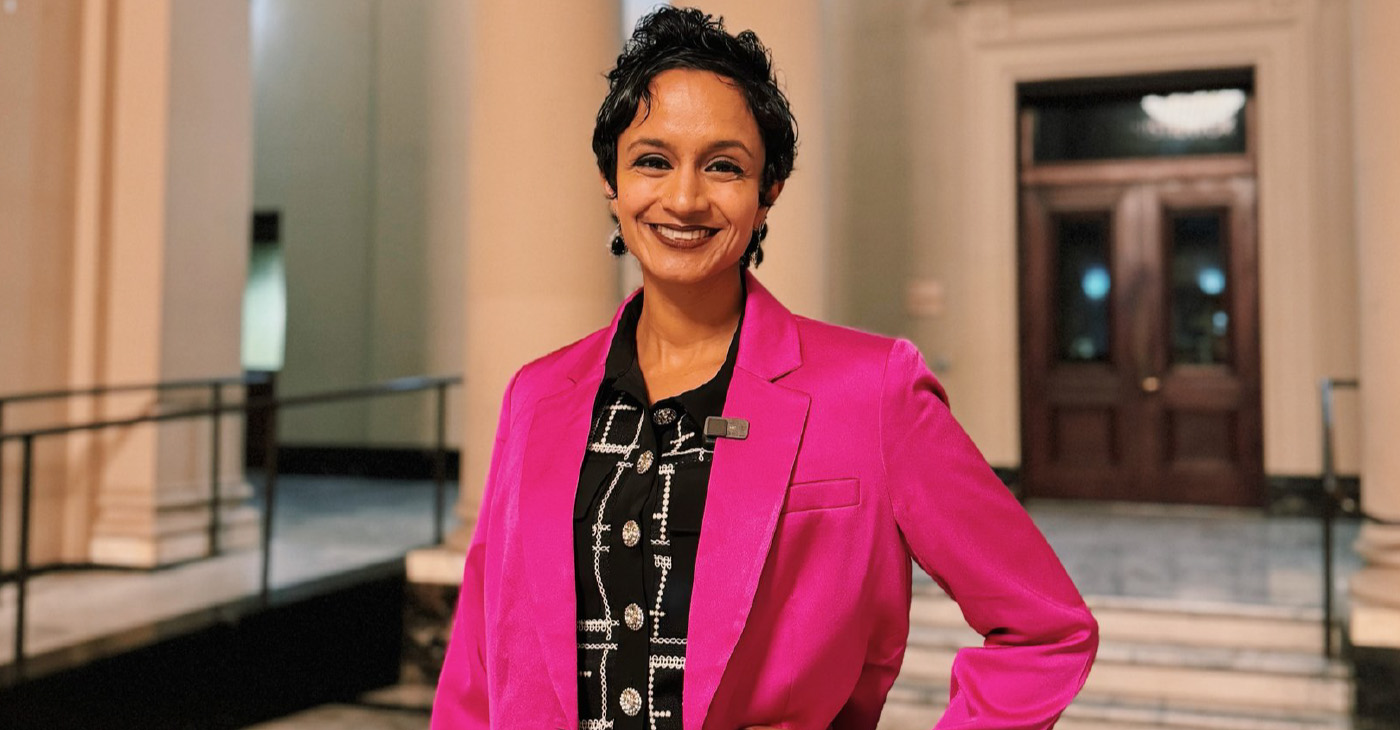Op-Ed
Proud to be Labeled ‘Anti-Colonialist’
By Lekan Oguntoyinbo
NNPA Columnist
As a child growing up in Africa, one of the first history lessons I learned was about leaders of anti-colonial struggles around the world. I read about Mahatma Gandhi, a tiny, bespectacled man in a homemade loincloth who brought down the British Empire in India without lifting a single weapon.
I read about liberation struggles against White minority-rule by Sam Nujoma in Namibia, Robert Mugabe in Rhodesia and Nelson Mandela in South Africa; about independence campaigns by Kwame Nkrumah in Ghana, Kenneth Kaunda in Zambia, and Jomo Kenyatta in Kenya.
I also learned early in elementary school that anti-colonialism was not a color thing. Our teachers taught us about George Washington, Thomas Jefferson, John Adams and the other courageous men who led the drive for American independence.
I read about Franklin Delano Roosevelt’s disagreements with his friend and ally, British Prime Minister Winston Churchill, near the end of World War II over the future of colonies. Churchill wanted to hold on to the Empire. Roosevelt thought colonialism didn’t square with western ideals about freedom and democracy. Within a year, the United States would grant independence to the Philippines, a colony that had come into its possession in the aftermath of the Spanish-American war of 1898.
Roosevelt’s views about liberty, self-determination and the right of a nation to choose its own leaders struck a chord with us. They seemed progressive, enlightened, egalitarian and very American. They seemed a refreshing contrast to the views of European colonial powers, including Britain, France, Belgium and Portugal.
Colonialism, after all, is a bad thing. It is oppressive, parasitic, ethnically chauvinistic and, in the case of the European powers, white supremacist. Most Africans and people of color around the world who have felt the sting of colonialism feel that way.
It was the one bond we shared with the Americans – or so we thought.
In recent years, the term anti-colonialist – a badge of honor won proudly by the founding fathers – has become a slur. In 2010, writer and conservative activist Dinesh D’ Souza said about President Barack Obama, whose grandfather Onyango Obama was imprisoned and tortured for years by British colonialists in Kenya in the late 1940s and early 50s:
“Some have described the president as being a conventional liberal or even a socialist. But liberals and socialists are typically focused on poverty and social equality; Obama rarely addresses these issues, and when he does so, it is without passion. Pretty much the only time Obama raises his voice is when he is expressing antagonism toward the big, bad corporations and toward those earning more than $250,000 a year.
I believe the most compelling explanation of Obama’s actions is that he is, just like his father, an anti-colonialist. Anti-colonialism is the idea that the rich countries got rich by looting the poor countries, and that within the rich countries, plutocratic and corporate elites continue to exploit ordinary citizens.
That same year, former House Speaker Newt Gingrich – seeking to add to speculation among White conservatives that Obama was not born in the United States – added that Obama has a “Kenyan, anti-colonial worldview.”
In an interview with the National Review, he said: “What if [Obama] is so outside our comprehension, that only if you understand Kenyan, anti-colonial behavior, can you begin to piece together [his actions]? That is the most accurate, predictive model for his behavior.”
Then just a few weeks ago, Rudy Giuliani – the pugnacious former mayor of New York City and one-time presidential candidate – told an audience that Obama doesn’t love America. Days later, in an interview with reporters, he denied that his criticism of Obama had anything to do with race.
“This isn’t racism,” he said. “This is socialism or possibly anti-colonialism.”
For much of the last century, the powers that be in the United States and the former colonial empires had a track record of branding activists, freedom fighters or people of color who didn’t fit into their mold as communists, terrorists or radicals. Radical was often code for anti-colonialist or troublemaker.
These labels extended to people who stood up to oppression (remember British Prime Minister Margaret Thatcher calling Mandela a terrorist?) or those who were embittered after having felt the vicious sting of racism.
Family members say Nyango Obama was not the same man when he got out of prison, where he was held for years without trial. While in prison, he was beaten daily, interrogated and humiliated – all because he was suspected of conspiring against British colonial authorities. He came home a broken man – bitter, short-tempered and emotionally disconnected from his family. More than 50,000 Kenyans were killed by the British during this period. Hundreds of thousands more were held in Nazi-style concentration camps – without due process
That should be enough to make any right thinking person an anti-colonialist.
Then again, the operative phrase is “right thinking.”
L.A. Wave columnist Lekan Oguntoyinbo is an independent journalist. Contact him at oguntoyinbo@gmail.com. Follow him on Twitter @oguntoyinbo.
###
Activism
Oakland Post Endorses Barbara Lee
Barbara Lee will be able to unify the city around Oakland’s critical budget and financial issues, since she will walk into the mayor’s office with the support of a super majority of seven city council members — enabling her to achieve much-needed consensus on moving Oakland into a successful future.

As we end the celebration of Women’s History Month in Oakland, we endorse Barbara Lee, a woman of demonstrated historical significance. In our opinion, she has the best chance of uniting the city and achieving our needs for affordable housing, public safety, and fiscal accountability.
As a former small business owner, Barbara Lee understands how to apply tools needed to revitalize Oakland’s downtown, uptown, and neighborhood businesses.
Barbara Lee will be able to unify the city around Oakland’s critical budget and financial issues, since she will walk into the mayor’s office with the support of a super majority of seven city council members — enabling her to achieve much-needed consensus on moving Oakland into a successful future.
It is notable that many of those who fought politically on both sides of the recent recall election battles have now laid down their weapons and become brothers and sisters in support of Barbara Lee. The Oakland Post is pleased to join them.
Activism
Actor, Philanthropist Blair Underwood Visits Bay Area, Kicks Off Literacy Program in ‘New Oakland’ Initiative
These community activations were coordinated with the San Francisco-based non-profit program “Room to Read.” Ray said he is also donating his time to read and take pictures with students to encourage their engagement and to inspire them to read more. The inspirational book “Clifford Ray Saves the Day” highlights Clifford Ray’s true story of saving a dolphin.

By Paul Cobb
New Oakland Series
Opinion Part 3
The Post mentioned three weeks ago that a number of our local luminaries were coming together to support the “New Oakland” movement. As this current national administration continues to eliminate our “legacy” institutional policies and programs left and right, most communities find themselves beyond “frozen” in fear.
Well, esteemed actor, long-time Bay Area supporter, and philanthropist Blair Underwood returned to Oakland this week to speak with city leaders, community trust agents, students, the Oakland Post, and local celebrities alike to continue his “New Oakland” initiative.
This week, he kicked off his “Guess Who’s Coming to Read” literacy program in some of Oakland’s middle schools. Clifford Ray, who played the center position of the 1975 World Champion Golden State Warriors, donated close to 1,000 books. Ray’s fellow teammate Charles “The Hopper” Dudley also gave Converse sneakers to students.
These community activations were coordinated with the San Francisco-based non-profit program “Room to Read.” Ray said he is also donating his time to read and take pictures with students to encourage their engagement and to inspire them to read more. The inspirational book “Clifford Ray Saves the Day” highlights Clifford Ray’s true story of saving a dolphin.
Underwood also spent quality time with the Oakland Ballers ownership group and visited the amazing Raimondi Park West Oakland community revitalization site. In the 1996 TV film Soul of the Game, Underwood played the role of the legendary first Black Major League Baseball player Jackie Robinson and commended the Ballers owners.
“This group of sports enthusiasts/ philanthropists needs to be applauded for their human capital investment and their financial capital investment,” Underwood said. “Truly putting their money and passion to work,” Underwood said.
Underwood was also inspired by mayoral candidate Barbara Lee’s open-minded invitation to bring public-private partnership opportunities to Oakland.
Underwood said he wants to “reinforce the importance of ‘collaborative activism’ among those most marginalized by non-empathic leadership. We must ‘act out’ our discomfort with passionate intentions to create healthy change.”
Activism
Councilmembers Ramachandran, Kaplan, Unger Identify Funds to Save Oakland Fire Stations
Our budget crisis – one of the worst in Oakland’s history – is compounded by the fact that people do not feel safe coming to Oakland due to our public safety crisis. By investing in our fundamental public safety resources today, we can send a signal to the world that Oakland is open for business. We have such a rich and vibrant culture, arts, and food scene that is worth celebrating – but we can only showcase this if we are able to keep our neighborhoods safe. Having fully functioning fire stations are absolutely essential to these efforts.

By Janani Ramachandran
There is no greater concern to the people of Oakland today than public safety. Fire stations are the bread and butter of essential city services – and every day that we have stations shuttered, we imperil the lives of our community members. In response to widespread outcry over the current and planned closure of stations, myself, along with Councilmembers Kaplan and Unger, have painstakingly worked to identify millions of dollars of new funding to save our stations. The legislation we introduced on Thursday, February 13th, will amend our budget to prevent the closure of four fire stations that are currently on the chopping block due to our budget crisis and will re-open two closed stations that have already been closed – Station 25 and 28 – in the near future. The resolution that will provide the funding to keep our stations open will go before the full City Council for a vote at our meeting on Tuesday, March 4th at 3:30 PM – and we invite you to join us at City Hall to share your perspective on the topic.
Our budget crisis – one of the worst in Oakland’s history – is compounded by the fact that people do not feel safe coming to Oakland due to our public safety crisis. By investing in our fundamental public safety resources today, we can send a signal to the world that Oakland is open for business. We have such a rich and vibrant culture, arts, and food scene that is worth celebrating – but we can only showcase this if we are able to keep our neighborhoods safe. Having fully functioning fire stations are absolutely essential to these efforts.
With the devastating Los Angeles fire at the top of people’s minds, terrible memories of Oakland’s own wildfires are re-surfacing from the 1991 Oakland Hills Firestorm to the Keller fire just a few months ago – and how essential fire stations are to mitigating these catastrophes. But in Oakland, our fire stations don’t just fight wildfires – they also provide emergency medical services to our most vulnerable constituents, put out structural fires and encampment fires, and much more.
We recognize that there are a number of competing interests and important initiatives fighting for sparse City resources. But from my perspective, core safety services are the most pivotal functions that a City must spend its resources on – especially given the outcry we have heard around fire stations.
The fight to save our stations is not over. The resolution we introduced is a critical first step, and there are hurdles to overcome. If you support keeping our fire stations open, we invite you to be a part of the solution by making your voice heard at the March 4th City Council meeting at 3:30 pm.
-

 Activism3 weeks ago
Activism3 weeks agoWe Fought on Opposite Sides of the Sheng Thao Recall. Here’s Why We’re Uniting Behind Barbara Lee for Oakland Mayor
-

 Activism4 weeks ago
Activism4 weeks agoSan Francisco Is Investing Millions to Address Food Insecurity. Is Oakland Doing the Same?
-

 #NNPA BlackPress4 weeks ago
#NNPA BlackPress4 weeks agoRev. Dr. Jamal Bryant’s Black Church Target Boycott Mobilizes 150,000
-

 Activism3 weeks ago
Activism3 weeks agoFaith Leaders Back Barbara Lee for Mayor, Criticize Candidate Loren Taylor for Dishonest Campaigning
-

 Activism4 weeks ago
Activism4 weeks agoOakland Post: Week of March 12 – 18, 2025
-

 Activism3 weeks ago
Activism3 weeks agoOakland’s Most Vulnerable Neighborhoods Are Struggling to Eat and Stay Healthy
-

 #NNPA BlackPress3 weeks ago
#NNPA BlackPress3 weeks agoRecently Approved Budget Plan Favors Wealthy, Slashes Aid to Low-Income Americans
-

 Activism3 weeks ago
Activism3 weeks agoGroup Takes First Steps to Recall District Attorney Diana Becton

























































